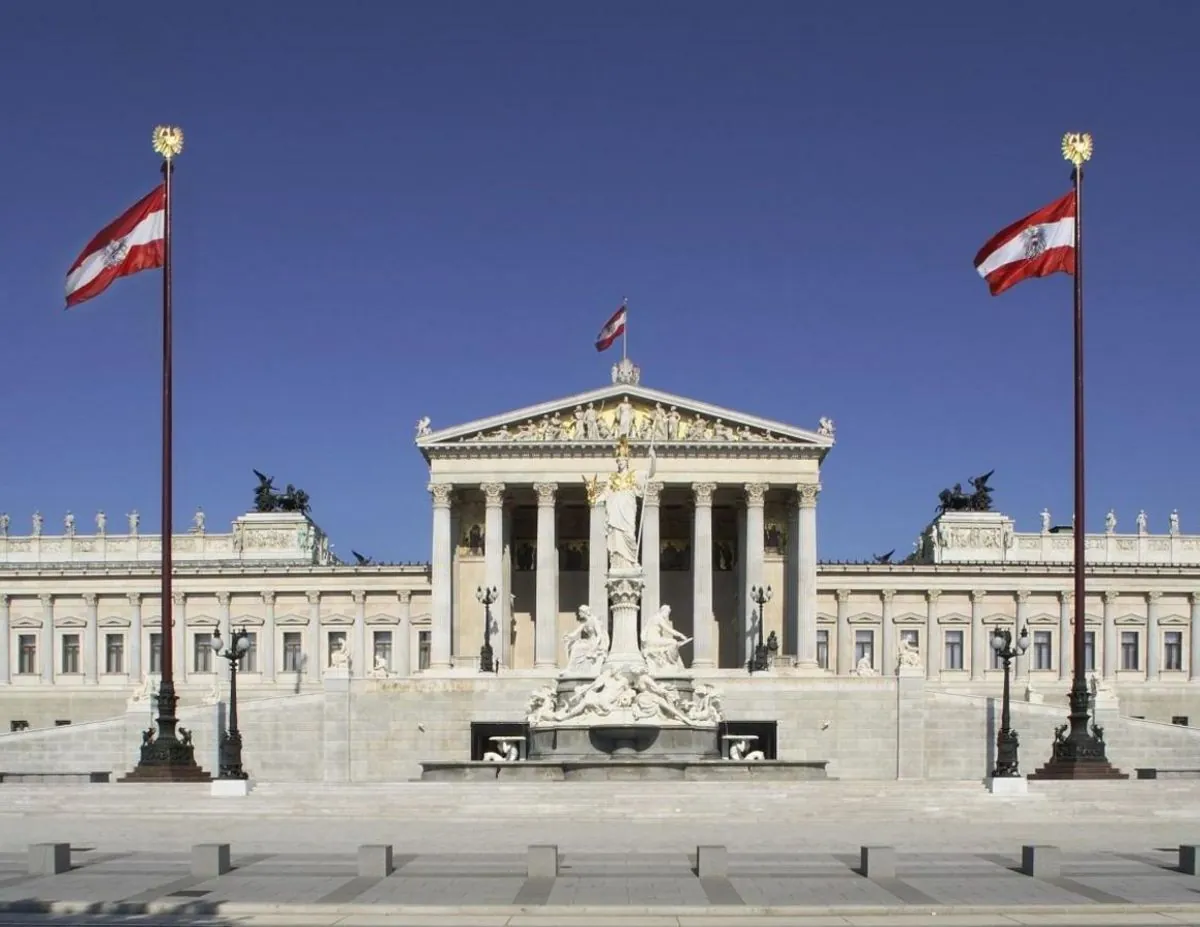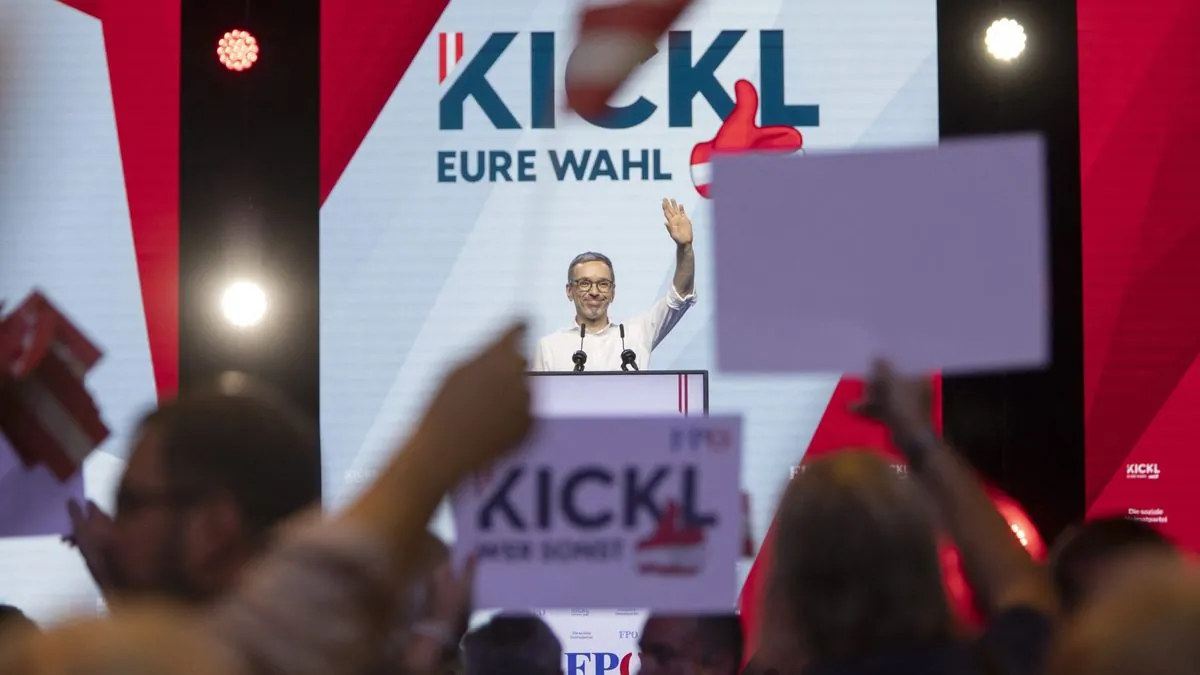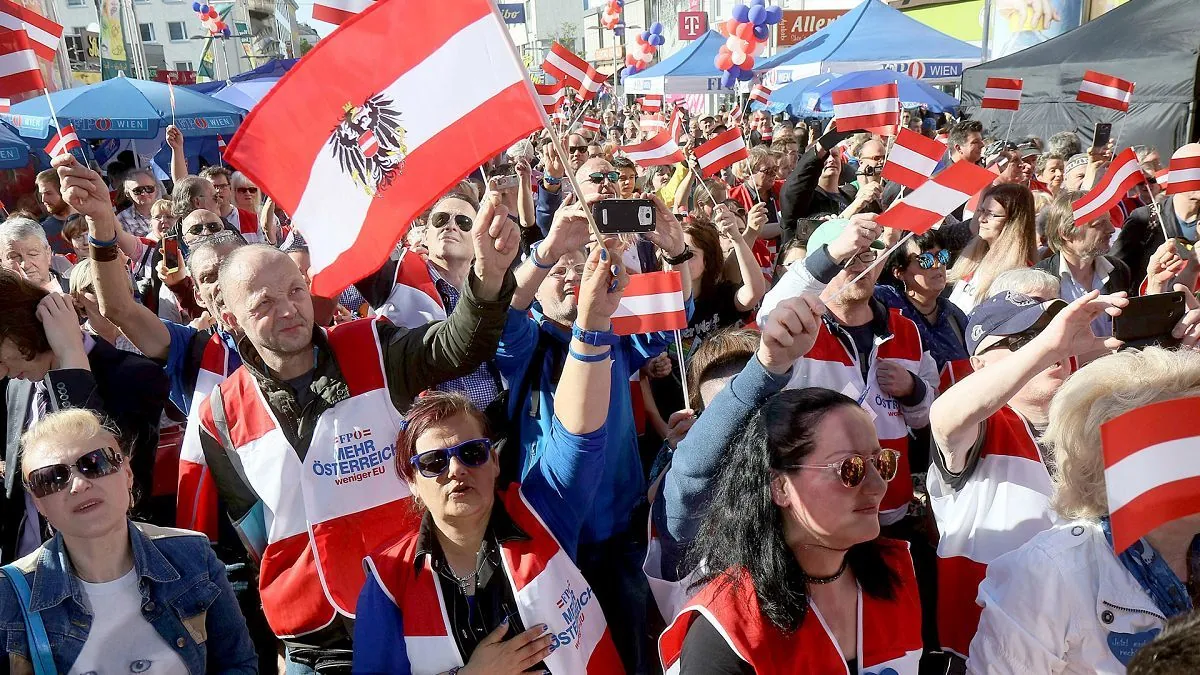Austria's Election: Tight Race Between Conservatives and Far-Right
Austria's upcoming parliamentary election sees a close contest between the OVP and FPO. Coalition scenarios are explored as no party is expected to secure an absolute majority.

In two days, Austria, a landlocked nation of approximately 9 million people, will hold its parliamentary election. The contest is shaping up to be a close race between the conservative Austrian People's Party (OVP) and the far-right Freedom Party (FPO). This election highlights Austria's complex political landscape, which has been characterized by coalition governments since the country became a federal republic in 1920.
The upcoming vote on September 29, 2024, is drawing significant attention due to the tight competition between the OVP, founded in 1945, and the FPO, established in 1956. Current polls suggest that neither party is likely to secure an absolute majority, necessitating coalition negotiations to form a stable government.
Austria's political system, based on proportional representation, often leads to multi-party coalitions. The country's rich history of coalition governments reflects its commitment to consensus-building and social partnership, particularly in labor relations. This tradition has contributed to Austria's high standard of living and comprehensive social welfare system.

President Alexander Van der Bellen, who took office in 2017, plays a crucial role in the government formation process. Typically, the president invites the election winner to initiate coalition talks. However, Van der Bellen, a former leader of the Greens, has expressed reservations about the FPO, particularly its leader Herbert Kickl. The president has noted that the constitution does not obligate him to follow this convention, potentially introducing an additional layer of complexity to the post-election scenario.
The most straightforward coalition option, according to current polls, would be an alliance between the FPO and OVP. These parties have collaborated in the past, with their most recent partnership lasting from 2017 to 2019. However, this coalition ended abruptly due to a scandal, commonly referred to as the "Ibiza affair," which occurred five years ago.
"I and my party will not take part in a government with Kickl in it."
Despite policy overlaps, particularly on immigration and tax cuts, Chancellor Karl Nehammer of the OVP has explicitly ruled out participating in a government that includes Kickl. This stance could complicate coalition negotiations if the FPO emerges victorious.
Another potential scenario involves a centrist coalition. Historically, alliances between the OVP and the Social Democratic Party (SPO), founded in 1889, were common in post-World War II Austria. However, such a partnership would likely require the inclusion of a third party, such as the liberal NEOS or the Greens, to secure a majority.
Austria's political landscape is further enriched by its cultural and economic context. The country, known for its Alpine landscapes and as a hub for classical music and art, joined the European Union in 1995 and has maintained neutrality since 1955. Its highly industrialized economy, with a strong focus on services, has contributed to its position as one of the world's most livable countries, particularly its capital, Vienna.
As Austrians prepare to cast their votes, the outcome remains uncertain. The election not only will determine the next government but also will shape Austria's approach to key issues such as immigration, economic policy, and its role within the European Union. Regardless of the result, the new government will face the challenge of balancing diverse political interests while addressing the needs of a nation known for its high quality of life and rich cultural heritage.



































